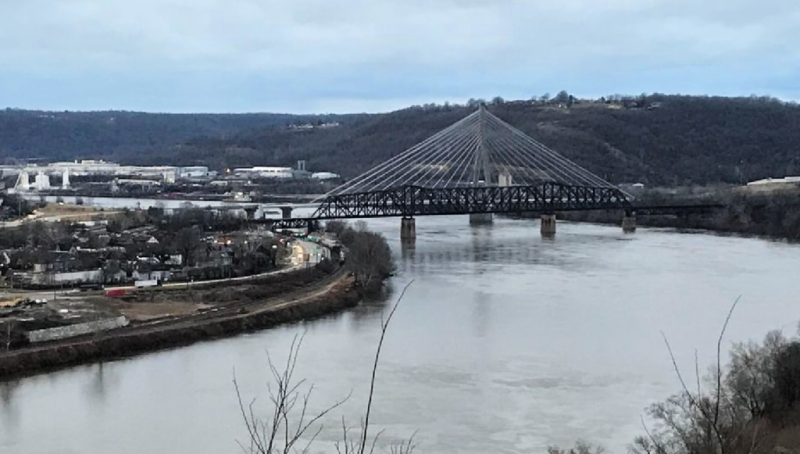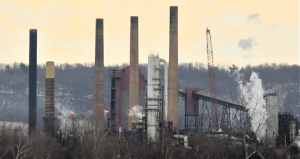
Ohio Valley Environmental Advocates (OVEA), in Follansbee, WV, works to protect the lives and livelihoods of communities in the Ohio Valley region beleaguered by over a century of heavy industry. The area faces severe environmental justice concerns from air and water pollution, soil contamination, and the health risks associated with exposure to hazardous substances and pollutants including respiratory problems, lung cancer and chronic obstructive pulmonary disease. “Protecting the environment and public health while advancing equity and a better economic future” is OVEA’s motto as they assist communities, disproportionately low-income and minority, who often lack the resources and political power to protect their health and the environment. Founded in 2022, OVEA collects and analyzes air and water emissions, advances environmental justice initiatives, and advocates for eco-industrial opportunities such as green.

Former Wheeling-Pittsburgh coke plant. WTRF News 2022
OVEA, an environmental advocacy nonprofit, began as an information and resource hub for the Ohio Valley region, yet the scope of their work has broadened. They actively promote legislative advocacy for brownfield remediation, infrastructural improvements, accredited youth education and development, and eco-industrial development. OVEA helped the Fractracker Alliance win funding to install air monitors in the six counties where it operates across West Virginia and Ohio. In 2023, when developers proposed a zero-emissions medical waste facility for Follansbee, OVEA got to work. West Virginia’s Department of Environmental Protection confirmed engineers’ analysis that the project’s emissions numbers had been underestimated. The city announced it would file an appeal against the air quality permit that had been approved by the Department of Environmental Protection. Shortly after, owners of the facility announced they were terminating pursuit of a permit for medical waste processing.
![]()